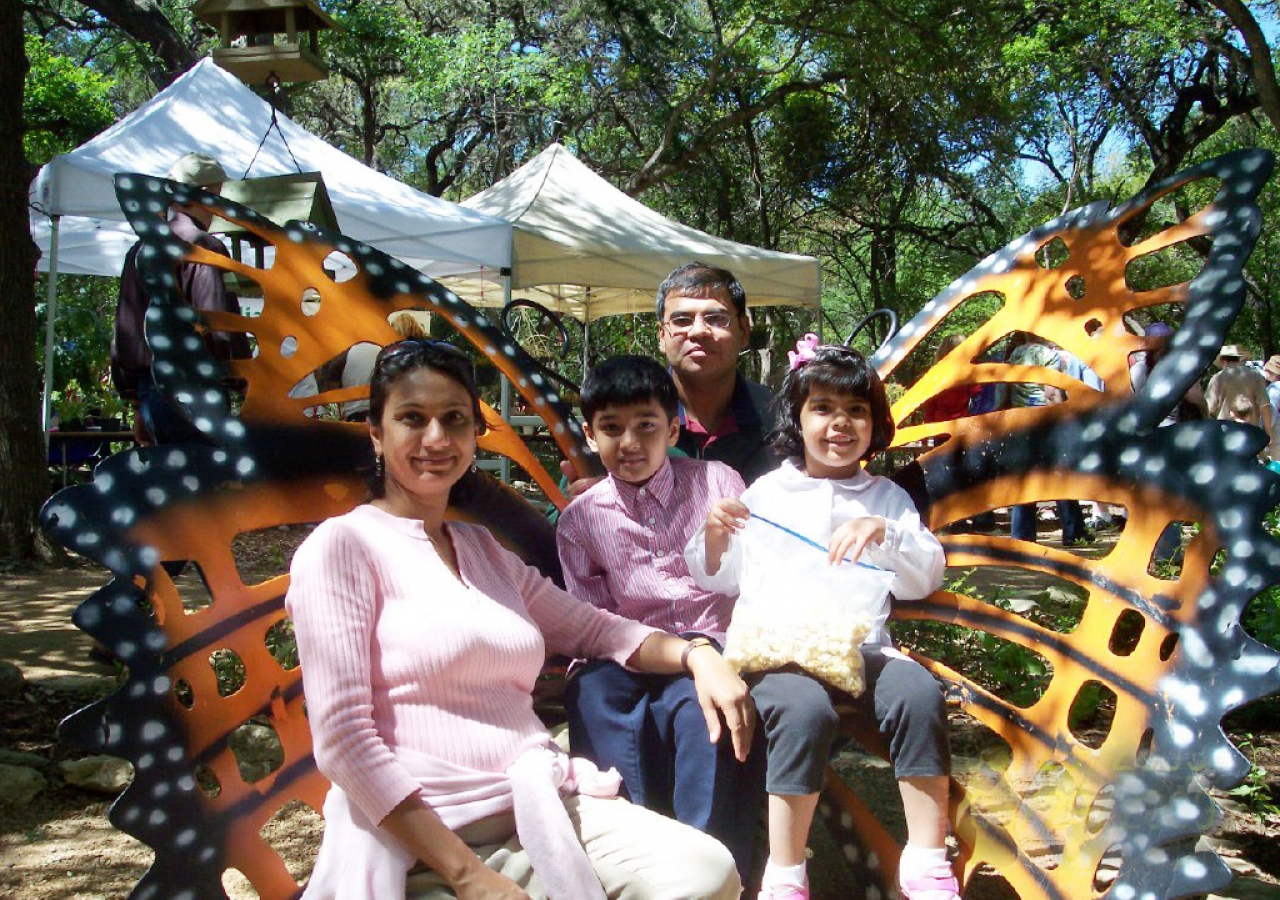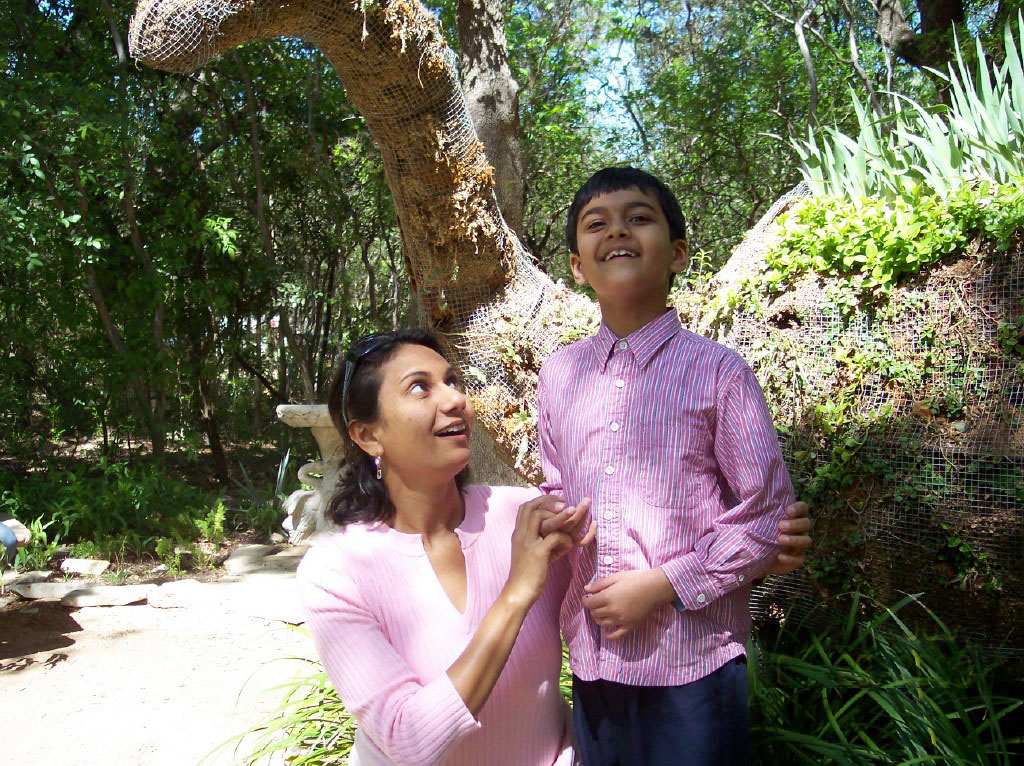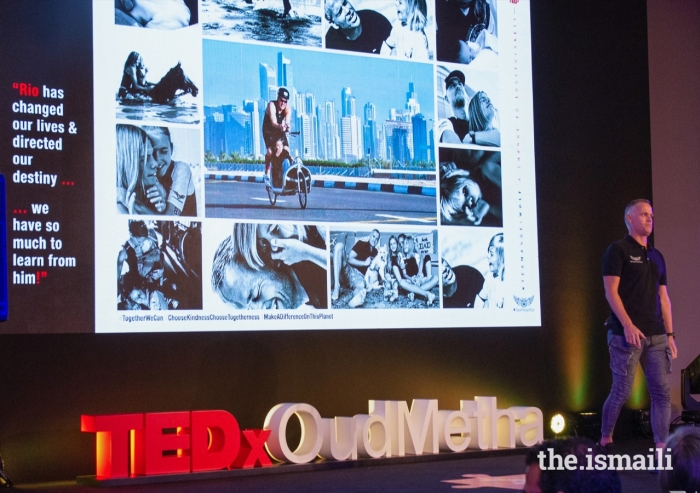Seven-year old Zain and his family, who live in Texas, are an example of all that is possible when sincere efforts are paired with unconditional love and patience.
At the age of two, Zain was diagnosed with Autism Spectrum Disorder (ASD), a developmental disability that affects a person's ability to communicate, interact with others, and display emotions. It affects 1 in every 150 children, making it more common than paediatric cancer, diabetes, and AIDS combined.
Zain's parents were frantic – this sudden change in their life plan led to a series of emotions comparable to those of bereavement. Denial and anger led to bargaining, and finally acceptance. But Salima and Arif Ali decided they would leave no stone unturned in exploring the various programs, therapies and interventions that exist for children like Zain.
It helped that Salima was a qualified internist, trained at the Aga Khan University in Karachi. She put her career on indefinite hold as she devoted her time to the care and development of her firstborn. A daughter, Sofia – not autistic – was born a few years later.
Accomplishments and challenges
“Zain is very bright when it comes to academics,” notes mother with pride. “He has been reading since he was three. His math skills are exceptional. He learned addition and subtraction within a span of six months.”
His memory is remarkable. He memorizes placement of objects within the first few minutes of observation making the perfect grocery- shopping companion. “When we are out shopping, I ask Zain, ‘which aisle has so and so product' and he responds with amazing accuracy each time,” says Salima.
Zain started out as a very picky eater because of severe mouth sensitivities. “Most days, he would walk away from the table without eating much or not at all,” recalls Arif. As a result his blood sugar would become low, he would get irritable, and have meltdowns. In response, Zain's parents undertook extensive feeding therapy, introducing one textured food at a time. They also implemented a gluten-free (wheat-free) and casein-free (milk-free) diet for Zain. “Now he eats a better variety than a regular kid! There is light at the end of every tunnel,” says Arif.
Despite the progress, there are also frustrations. Simple tasks like hand-washing have to be taught over and over again to an ASD child. The obsessive-compulsive trait is a challenge too. For a span of four years, Zain was consumed with the desire to hide every object in the house. The phase passed, but Zain's difficulty with safety issues continues to be a concern.
“Running to the street as soon as the door opens, touching a hot stove, and putting knives in his mouth are just a few scary scenarios that occur in our house,” says Salima. Still, the single biggest worry is that ASD children do not possess a sense of belonging to their parents. Unlike a normal child, if Zain were to get lost, he would not look for his parents. As a result, the Alis keep a close watch on him in public places and ensure his safety.
One milestone at a time
A few years ago, the Alis participated in a Relationship Development Intervention Program for Autism Spectrum Disorders in Houston. “Since the training, we place a lot of emphasis on strengthening the relationship between my son and daughter and amongst ourselves as well,” says Salima. “What we do with him is a more play-based form of therapy, intended to invoke feelings since ASD kids do not show emotions.”
As a doctor, Salima feels more fortunate than other parents in similar situations. “In understanding and administering his biomedical, sensory and oral motor therapies, my medical background has helped tremendously,” she notes. In 2008, the Ali's began the Applied Behavior Analysis (ABA) therapy, a tedious, extensive and expensive therapy in which a therapist works with Zain and his parents for 20 hours each week. “We have seen great progress in Zain's language and behavior from this treatment,” notes Salima.
The Alis are ever grateful for Zain's mini-milestones. “Imagine if you train really hard for six months for a marathon and then you are among the first ones to reach the finish line, wouldn't you be proud of yourself?” asks Salima. “Of course, I am proud of his progress and so is he.”
Moments of great joy were when Zain first jumped after a year of occupational therapy at age four, blew his first candle after 3 months of oral motor therapy at age five, learned to ride his tricycle after four years of hard work and learned to ask the what, why and where questions at age seven. Salima stresses that hard work makes the rewards sweeter. “A neurotypical child does all of these things by the book and we take that for granted. Not us and not anymore.”
Strength and encouragement
Salima has also found that she has become more patient after having Zain. “Being the parent of special needs child has made me more appreciative of the differences in each person and I am more tolerant of other people's shortcomings,” she reflects.To relieve her stress, Salima does yoga and voluntary work when she can. She is also active with support groups online where she shares the joys and frustrations of raising a special needs child with other parents. “A resolution for the New Year is to provide some opportunities to Arif to relieve his stress since he has no outlet.”
For parents who find themselves in a similar situation, the Alis have some advice: “Don't be afraid of the stigma and don't get discouraged.” Arif notes that “it is important for parents of autistic children to communicate with others about their situation.” The Alis found that once they confided in people, they received much encouragement and help.
They also advise parents to stay strong and not give up. “Instead of worrying about the future, live in the present and enjoy the time you spend with your special child,” says Salima. “Seek pleasure in the effort that you are making in improving the life of your child.”
The Alis have been on this journey for sevaral years now. “Initially we were not very knowledgeable and expected every therapy to offer the miracle ‘cure',” says Salima. “So when we did not see instant results, we became depressed. Now we understand that functioning with autism is going to be a long process and that Zain will take his time to get there.”
Meanwhile he will have his dedicated family cheering him all the way.











